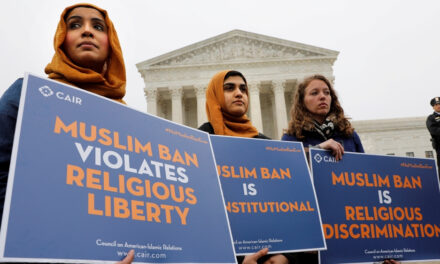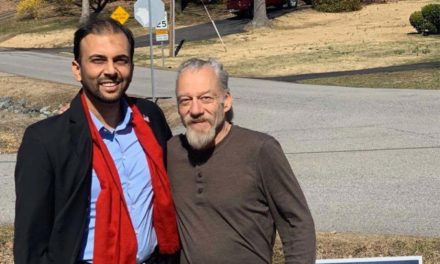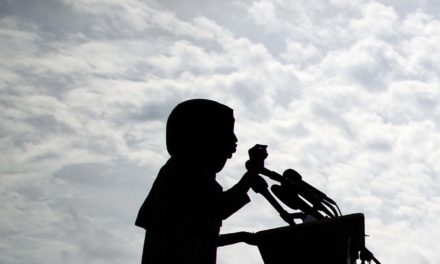Azim Kidwai for abc.net
There is consensus that the global economy is facing a recession, if not a depression, in the wake of the COVID-19 pandemic. Many parts of the world may be protected from the worst of this by the billions in increased consumer spending and charitable giving during the holy month of Ramadan. There is an accommodation between materialistic and spiritual values in Muslim-majority countries, as well as among Muslim communities in Europe and North America, that may provide an economic lifeline for billions of people across the globe.
This lifeline is sorely needed. Economists are warning that this could be the worst blow to the global economy since the 1930s Great Depression. US oil prices even dipped below zero last week for the first time in history. The UN has warned of famines of “biblical proportions.”
Global capitalism as we know it may not survive this crisis. It has been blamed by many for the global climate crisis, given the market’s relentless focus on profit over sustainability. It is also lambasted for producing stark levels of inequality throughout the world — currently the richest 1 per cent of the world own 44 per cent of the wealth. These criticisms have been amplified in recent months as COVID-19 forces us to question our assumptions about the world economic order.
These assumptions have been shaken by, for example, the Conservative UK government effectively nationalising the country’s payroll. The similarly right-wing US government is set to inject two trillion dollars into the economy. These are all unprecedented measures which show us that “conventional capitalism is dead.”
As economists look for previously unimaginable solutions to our unprecedented problems, they may find ideas in unlikely places. One of those is religion. Ramadan, for example, is best known as a time for spiritual reflection and communal togetherness. From an economic perspective, however, Ramadan is a time for spending money. Spending levels surge dramatically during these months, as Muslims splurge on food, gifts and Eid outfits. It is estimated that Ramadan spending is worth more than £200 million to the UK economy alone, and billions across the Muslim world.
That much-needed economic liquidity is not just about consumer spending — it also includes charitable giving. What is non-negotiable for Muslims this year, or any year, is alms-giving, known in Islam as Zakat. This requires Muslims of a certain income level to donate 2.5 per cent of their wealth each year to charity.
The vast majority of Muslims pay their Zakat during Ramadan — many Zakat collecting bodies estimate that 85 per cent of their donations come during the holy month. This means that a multi-billion-dollar stimulus package is about to be rolled out across Muslim-majority countries, and nations with sizeable Muslim minorities. This is unlikely to be affected by the current crisis, since Zakat is calculated as a percentage of net wealth and income acquired over the past year, rather than on expected income or simply on available cash.
This “Zakat liquidity” is especially crucial in times of economic difficulty, when consumers are more likely to conserve money for a rainy day. The fact that Zakat is mandatory in Islam means that it forces money to flow in an otherwise illiquid economy.
The World Bank has estimated that global Zakat funds reach US$600 billion each year. Assuming that 85 per cent of this is paid in the next month, this could be a massive boost to the global economy. This global mandatory wealth tax, payable by a quarter of the world’s population, could save some of the worst-affected regions from humanitarian catastrophe.
After the “Ramadan bailout,” I hope that the place of religious values in a healthy and sustainable economy can be more widely recognised by political leaders and policy makers. 84 per cent of the world identifies with a religious group — those values should form part of how their economic lives are managed, rather than be consigned to private spirituality.
In much of the Muslim world, it goes without saying that the mosque and the market go together — they are often placed in very close proximity in commercial capitals. The rest of the world should take this crisis as an opportunity to reach a new accommodation between the worldly and the otherworldly. Capitalism is not dying; it is simply going through a rebirth of almost religious significance.














